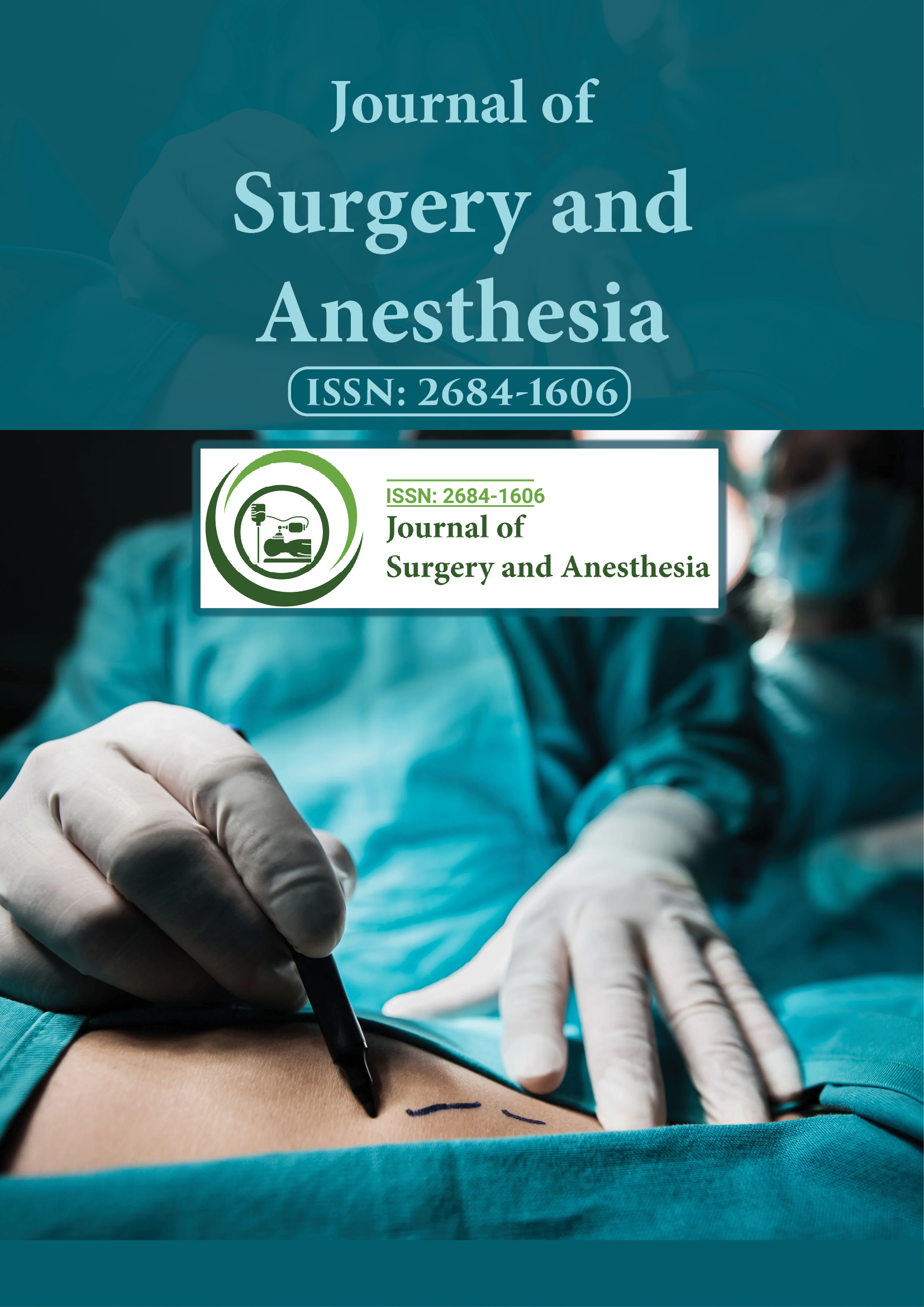Indexed In
- Google Scholar
Useful Links
Share This Page
Journal Flyer

Open Access Journals
- Agri and Aquaculture
- Biochemistry
- Bioinformatics & Systems Biology
- Business & Management
- Chemistry
- Clinical Sciences
- Engineering
- Food & Nutrition
- General Science
- Genetics & Molecular Biology
- Immunology & Microbiology
- Medical Sciences
- Neuroscience & Psychology
- Nursing & Health Care
- Pharmaceutical Sciences
Commentary - (2023) Volume 7, Issue 1
Importance of Cardiac Surgery in Treating Heart Diseases
Carol Bitetti*Received: 22-Feb-2023, Manuscript No. JSA-23- 20608; Editor assigned: 24-Feb-2023, Pre QC No. JSA-23- 20608(PQ); Reviewed: 10-Mar-2023, QC No. JSA-23- 20608; Revised: 17-Mar-2023, Manuscript No. JSA-23- 20608(R); Published: 27-Mar-2023, DOI: 10.35248/2684-1606.23.7.203
Description
Cardiac surgery is a medical specialty that deals with the surgical treatment of heart diseases. The most common conditions that require cardiac surgery are coronary artery disease, valvular heart disease, and congenital heart defects. Cardiac surgery is a complex and demanding field that requires a high level of expertise and experience. In this article, we will discuss the different types of cardiac surgery, the risks and benefits of these procedures, and the role of cardiac surgery in the treatment of heart disease.
Types of Cardiac Surgery
Coronary artery bypass grafting: This condition occurs when the arteries that supply blood to the heart become narrow or blocked due to the buildup of plaque. In CABG, a surgeon uses a vein or artery from another part of the body to bypass the blocked artery and restore blood flow to the heart. Coronary Artery Bypass Grafting (CABG) can be performed using traditional open-heart surgery or minimally invasive techniques.
Valve replacement surgery: Valve replacement surgery is a procedure used to treat valvular heart disease. This condition occurs when the heart valves become damaged or diseased and are unable to function properly. In valve replacement surgery, the damaged valve is removed and replaced with a mechanical or biological valve. Mechanical valves are made of metal and are durable, but require lifelong anticoagulant therapy to prevent blood clots. Biological valves are made of tissue and do not require anticoagulant therapy, but are less durable than mechanical valves.
Arrhythmia surgery: Arrhythmia surgery is a procedure used to treat irregular heart rhythms, also known as arrhythmias. In this procedure, a surgeon uses a variety of techniques to restore the normal rhythm of the heart. This can include the use of electrical shocks, ablation therapy, or the placement of a pacemaker or defibrillator.
Congenital Heart Surgery: Congenital heart surgery is a type of surgery used to treat congenital heart defects. These defects are present at birth and can affect the structure and function of the heart. In congenital heart surgery, a surgeon uses a variety of techniques to repair or replace the damaged structures of the heart. This can include the closure of holes in the heart, the reconstruction of malformed valves, or the repair of abnormal blood vessels.
Risks and benefits of cardiac surgery
Like all surgical procedures, cardiac surgery carries risks and benefits. The risks of cardiac surgery include bleeding, infection, stroke, heart attack, and death. However, the benefits of cardiac surgery can be significant. For patients with coronary artery disease, CABG can relieve symptoms such as chest pain and improve quality of life. For patients with valvular heart disease, valve replacement surgery can improve heart function and prevent further damage to the heart. For patients with arrhythmias, arrhythmia surgery can restore normal heart rhythm and reduce the risk of complications. For patients with congenital heart defects, congenital heart surgery can improve heart function and prevent further damage to the heart.
Role of cardiac surgery in the treatment of heart disease
Cardiac surgery plays an important role in the treatment of heart disease. For many patients, cardiac surgery is the most effective treatment option. It can relieve symptoms, improve quality of life, and reduce the risk of complications. In addition, advances in cardiac surgery techniques and technology have made these procedures safer and more effective than ever before. However, cardiac surgery is not the only treatment option for heart disease. In some cases, non-surgical treatments such as medications, lifestyle changes, or minimally invasive procedures may be appropriate. The choice of treatment depends on the individual patient's condition, medical history, and personal preferences.
Citation: Bitetti C (2023) Importance of Cardiac Surgery in Treating Heart Diseases. J Surg Anesth. 7:203.
Copyright: © 2023 Bitetti C. This is an open access article distributed under the terms of the Creative Commons Attribution License, which permits unrestricted use, distribution, and reproduction in any medium, provided the original author and source are credited.
